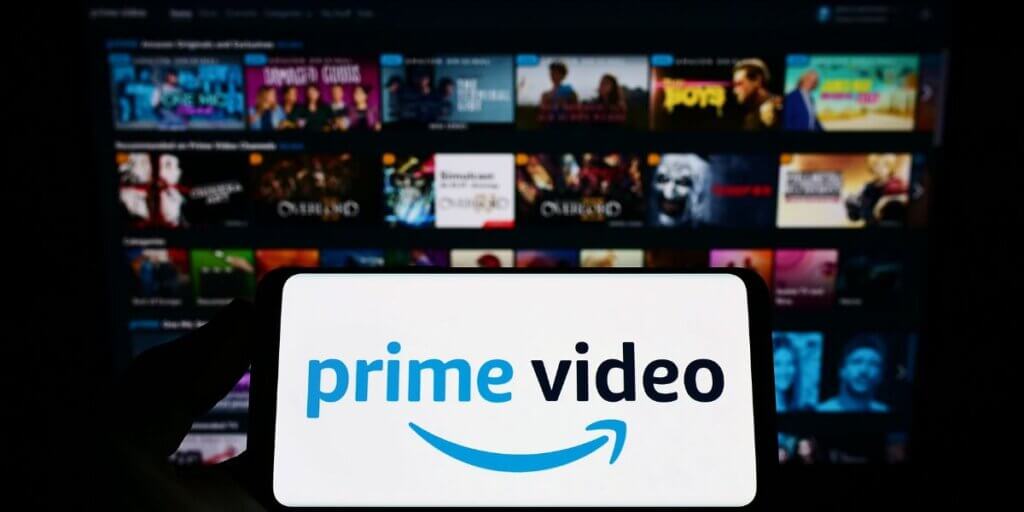Lower your internet bill
61% of people overpay for their internet.
Are you one of them?
Unlock exclusive offers in your area!
Call now
[tel]Enter zip code
1 Star is Poor & 5 Stars is Excellent.
* Required

Written by Rosslyn Elliott - Pub. Aug 23, 2024 / Updated Sep 30, 2024
Table of Contents
Are you happy with your Internet service?

About the author
There’s a lot of conflicting advice online about ideal internet speeds for streaming video. Many sites imply that smooth streaming only requires speed of a few megabits per second (Mbps). But if that’s true, why do you still get glitches and slowdowns?
Shouldn’t any internet plan in the world be able to give you 5 Mbps of internet speed?
As you’ve probably guessed, it’s not that simple. Internet speeds can be affected by outside factors, any one of which might be messing up your streaming. Also, the number of devices using your connection will multiply the Mbps needed at any given time.
Here’s an overview of the real levels of internet speed you need to get smooth streaming for everyone in your household.
Internet speed refers to how quickly data is actually transferred over your internet connection at any given time. It’s measured in megabits per second (Mbps) or gigabits per second (Gbps).
You can measure your internet connection speed here with our speed test. Speed tests can help you determine whether your speed is varying at different times during the day.
Bandwidth is closely related to internet speed. It refers to the maximum amount of data that can be transmitted over an internet connection in a given amount of time. Higher bandwidth allows for faster data transfer and, consequently, better streaming quality.
The tricky part is that when internet providers (ISPs) tell you your internet speed, they are really telling you a bandwidth. That’s why their numbers usually come with the words “up to” in front, as in “up to 200 Mbps” or “up to 1 Gbps.”
Your bandwidth is how much data-transmitting power and speed your connection has when it is working perfectly with no interference or other issues.
When you are streaming content onto a device, such as streaming a movie on your TV, download speed matters more than upload speed.
Download speed affects how quickly you can receive data (like video content) from the internet.
Upload speed determines how fast you can send data to the internet.
That means that upload speed is most important when you yourself are live-streaming video to followers. Live-streaming usually happens through social media platforms including Facebook, Instagram, YouTube, LinkedIn, or Twitch.

Upload vs. download speeds
There’s no single “perfect internet speed” for streaming because your speed requirements depend on three major factors:
To give you a general idea, here’s the minimum speed you need for each level of video streaming.
Repeat, these are minimum requirements! For each device that is streaming, you will need to multiply these speeds. So, if you have 4 devices doing standard (SD) streaming and they each need 4 Mbps, you will want at least 16 Mbps download speed.
If you have four devices all doing 4K Ultra HD streaming, each needing 25 Mbps, you will want at least 100 Mbps download speed.
You get the picture. Literally.
For gamers who want to play real-time online games, here are the minimum recommended speeds for each device [1]:
Livestreaming means broadcasting your real-time activity to other people over the internet. Some people livestream their attendance at special events. Others livestream their competitive video gaming so others can watch. Livestreaming platforms have their own speed requirements because for livestreaming, upload speed is just as important as download speed [2].

Livestreaming needs good upload speeds
The ideal internet speed for you will support everything you do online without breaking the bank. Here’s a quick checklist of the steps you can take to figure out your best internet speed.
How many internet-connected devices do you have? Each one takes up some bandwidth. Include your Wi-Fi smart home devices like your security system. And remember your portable devices that sometimes hook up to Wi-Fi, like any phones, tablets, or laptops in the house!
Are you a casual browser, a 4K streaming enthusiast, or a competitive gamer? How about the other people in your household? Your data usage will vary based on your online activities.
Do you live alone, or do you have a family of five who all stream simultaneously? More users mean you need more speed.
Technology is always advancing. Getting a speed slightly higher than what you need now can save you hassle in the future. Many people are opting for fiber internet because unlike any other internet technologies, fiber has symmetrical speeds.
Here’s a round-up of minimum speed requirements for different streaming platforms you may be using.
Netflix has clear recommendations for how much speed each device on your connection will need, based on the quality of video you want [3]:
YouTube’s speed requirements also vary based on the video quality [4]. Again, these speeds need to be multiplied by every device that will be streaming at the same time. You also need to account for any devices that are constantly hooked up to your internet or Wi-Fi, such as smart home devices.

Amazon is known for its large collection of movies and TV shows, and many are available in 4K Ultra HD [5].
Disney’s video library also includes a number of 4K streaming selections. Here are their recommendations for streaming speeds [6].
Max tends to recommend higher speeds for Ultra HD streaming [7]. We tend to agree, as most households now have several devices on their home Wi-Fi network at any given time.
Hulu suggests a higher speed for its livestreams (such as sports games), which makes sense to get more stability for a live broadcast [8].
Like the other streaming services, Peacock recommends higher speeds for live events and Ultra HD [9]. We think their estimates are too low, however, when compared to general industry guidance.

Check your Wi-Fi speed
Different types of internet connections offer varying speeds:
During peak hours (usually 7–11 PM), you may experience slower speeds due to increased network traffic in your area. If you have fiber, congestion is not usually a problem, but cable, fixed wireless, and satellite can all slow down during peak hours. It’s less likely for cable now that cable ISPs have upgraded to hybrid fiber-coaxial (HFC).
If you’re using Wi-Fi in your home, your distance from the router and obstacles like walls can affect your speed. Make sure you have figured out your ideal router placement for your home’s layout. If you have weak signal spots, you can also look in to mesh Wi-Fi or extenders.
Some ISPs may slow down your connection if you exceed a certain data limit or during peak hours. This is more common among wireless ISP providers such as fixed wireless or satellite carriers.
If you’re experiencing buffering or low-quality streams, try these tips:
Sometimes, a simple restart can resolve connectivity issues.
Whenever possible, connect your streaming device directly to your router with an Ethernet cable for the best performance.

Plug in with Ethernet cable
If you have an older router, upgrading to a newer model could greatly improve your Wi-Fi performance. If you have an advanced router, you may be able to adjust your settings so streaming takes priority over other tasks.
Other apps and browser tabs can use bandwidth in the background, slowing down your streaming. Close everything else down if you want optimal bandwidth for streaming.
If you consistently need more speed, it may be time to upgrade to a faster internet plan. Enter your zip code to check out all the providers and plans in your area.
In spring of 2024, the FCC changed the definition of what would count as “high-speed internet.”
High-speed internet, or broadband, as it’s also called, is now defined by the federal government as 100 Mbps download/25 Mbps upload [10].
For many households, this speed level will be good enough to support a great streaming experience.
Larger families or homes with several remote workers or gamers might want higher speeds (300-500 Mbps download) to keep their sports and movies streaming without buffering.
But if you have a lot of heavy internet users, and you want to be sure you have ample speed for anything you need, try to go with fiber internet. Any fiber internet speed above 300 Mbps will give you ample bandwidth for streaming.
[1] ValeVPN.com. “What is a Good Internet Speed for Gaming?"
[2] Britannica.com. “Livestreaming."
[3] Netflix.com. “Internet Speed Recommendations."
[4] YouTube.com. “Speed Requirements."
[6] DisneyPlus.com. “Recommended Speeds."
[7] Max.com. “Internet Speeds."
[8] Hulu.com. “Speed Recommendations."
[9] PeacockTV.com. “How Do I Fix Issues with Slow Loading or Buffering on Peacock."

About the author
Congratulations, you qualify for deals on internet plans.
Speak with our specialists to access all local discounts and limited time offers in your area.
[tel]61% of people overpay for their internet.
Are you one of them?
Unlock exclusive offers in your area!
Call now
[tel]Enter zip code